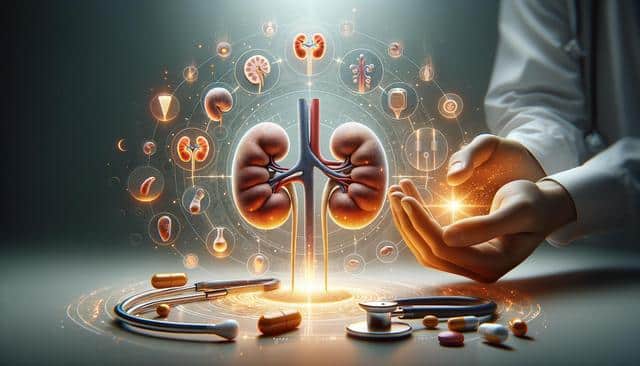Understanding the Basics of Chronic Kidney Disease
Chronic Kidney Disease (CKD) is a long-term condition where the kidneys gradually lose their function. The kidneys play a crucial role in filtering waste and excess fluids from the blood, maintaining electrolyte balance, and regulating blood pressure. When CKD progresses, these essential functions become compromised, leading to a buildup of waste products and fluid imbalances in the body. CKD is often asymptomatic in its early stages, making it difficult to detect without regular medical check-ups. It is classified into five stages based on the glomerular filtration rate (GFR), with Stage 1 being mild kidney damage and Stage 5 representing kidney failure, which requires dialysis or transplantation. Understanding these stages and monitoring kidney function can help in managing the disease effectively.
Common Causes and Risk Factors
Several factors contribute to the development of Chronic Kidney Disease. The most prevalent causes include diabetes and hypertension, which account for nearly two-thirds of the cases. These conditions damage the blood vessels in the kidneys, impairing their ability to filter blood properly. Other risk factors include:
- Genetic predispositions, such as a family history of kidney disease
- Age, with individuals over 60 at higher risk
- Obesity, which can exacerbate other health issues
- High cholesterol levels
- Smoking and excessive alcohol consumption
Addressing these risk factors through lifestyle changes and medical intervention is vital in preventing the onset or progression of CKD.
Symptoms and Diagnosis
In the initial stages, Chronic Kidney Disease often presents no noticeable symptoms. However, as it advances, patients may experience a range of symptoms such as fatigue, swelling in the legs and ankles, shortness of breath, and changes in urination patterns. Diagnosis typically involves blood tests to measure the level of waste products like creatinine, urine tests to detect albumin, and imaging tests to assess kidney structure and function. Early detection through these methods is crucial for slowing the progression of the disease and minimizing complications. Regular screening is recommended for high-risk individuals to ensure timely diagnosis and treatment.
Treatment and Management
Managing Chronic Kidney Disease involves a combination of lifestyle changes, medication, and regular monitoring. Lifestyle changes focus on maintaining a healthy diet, controlling blood pressure, and managing blood sugar levels in diabetic patients. A diet low in sodium, phosphorus, and protein can help reduce the kidneys’ workload. Medications may include ACE inhibitors or ARBs to manage blood pressure and slow kidney damage. In advanced stages, dialysis or a kidney transplant may be necessary. Regular follow-ups with healthcare providers are essential to monitor kidney function and adjust treatment plans as needed. Patients are encouraged to work closely with their healthcare team to tailor a management plan that suits their individual needs.
Living with Chronic Kidney Disease
Living with CKD requires an ongoing commitment to health and wellness. Patients should adopt a proactive approach to manage their condition, including regular exercise, a balanced diet, and avoiding harmful habits like smoking and excessive alcohol consumption. Emotional and psychological support is also important, as living with a chronic condition can be challenging. Support groups and counseling services can provide patients with the necessary resources to cope with the emotional aspects of CKD. Education about the disease and self-management strategies empower patients to take control of their health and improve their quality of life.
Conclusion
Chronic Kidney Disease is a complex condition that requires comprehensive management and early intervention. By understanding the causes, symptoms, and treatment options, individuals can take proactive steps to protect their kidney health. Regular medical check-ups, lifestyle modifications, and adherence to treatment regimens are crucial for slowing the progression of CKD and enhancing patients’ quality of life. Educating patients and their families about the disease supports informed decision-making and fosters a collaborative approach to healthcare. Awareness and education are key components in the fight against Chronic Kidney Disease, empowering individuals to lead healthier lives despite the challenges of this condition.
